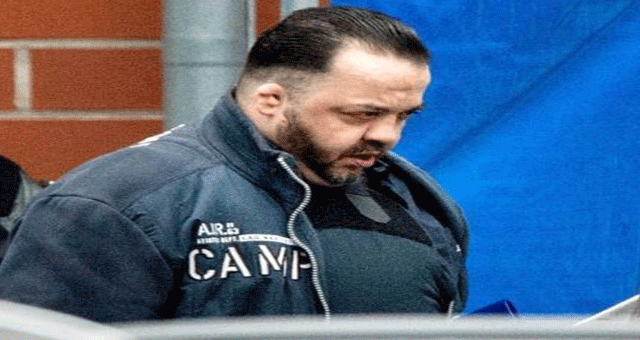News
41-year old German nurse, Niels Hoegel admits killing over 100 patients in a period of 5-years

On Tuesday, former nurse Niels Hoegel admitted to killing 100 patients in his care, on the first day of his trial in the biggest serial killing case in Germany’s post-war history.
41-year old Hoegel has already spent nearly a decade in prison on a life term for other patient deaths, and is accused of intentionally administering medical overdoses to victims so he could bring them back to life at the last moment. As the proceedings opened in the northern city of Oldenburg, presiding judge Sebastian Buehrmann asked whether the charges against him were accurate.
Hoegel replied quietly “yes. What I have admitted took place,” he told the courtroom crowded with dozens of grieving relatives. Buehrmann said the main aim of the trial was to establish the full scope of the murder spree that was allowed to go unchecked for years at two German hospitals.
“It is like a house with dark rooms we want to bring light into the darkness,” he said. After a minute of silence in the courtroom for the victims, Hoegel listened impassively, his head lowered, as public prosecutor Daniela Schiereck-Bohlmann read out the name of each dead patient and the charges against the defendant.
Prosecutors say at least 36 patients were killed at a hospital in Oldenburg where he worked, and about 64 more at a clinic in nearby Delmenhorst, between 2000 and 2005. More than 130 bodies of patients who died on Hoegel’s watch have been exhumed, in a case investigators have called “unprecedented in Germany to our knowledge”.
One of the more than 100 co-plaintiffs in the trial, Christian Marbach, said it was a scandal that Hoegel had been allowed to kill with impunity for such an extended period of time without hospital authorities or law enforcement intervening. Investigators say the final toll could top 200 but fear they might never know for sure because the bodies of many possible victims were cremated.
Hoegel appears to have followed a similar procedure each time, first injecting a medication that triggered cardiac arrest, followed by an often futile attempt at resuscitation. Prosecutors say he was motivated by vanity, to show off his skills at saving human lives, and by simple “boredom”.




